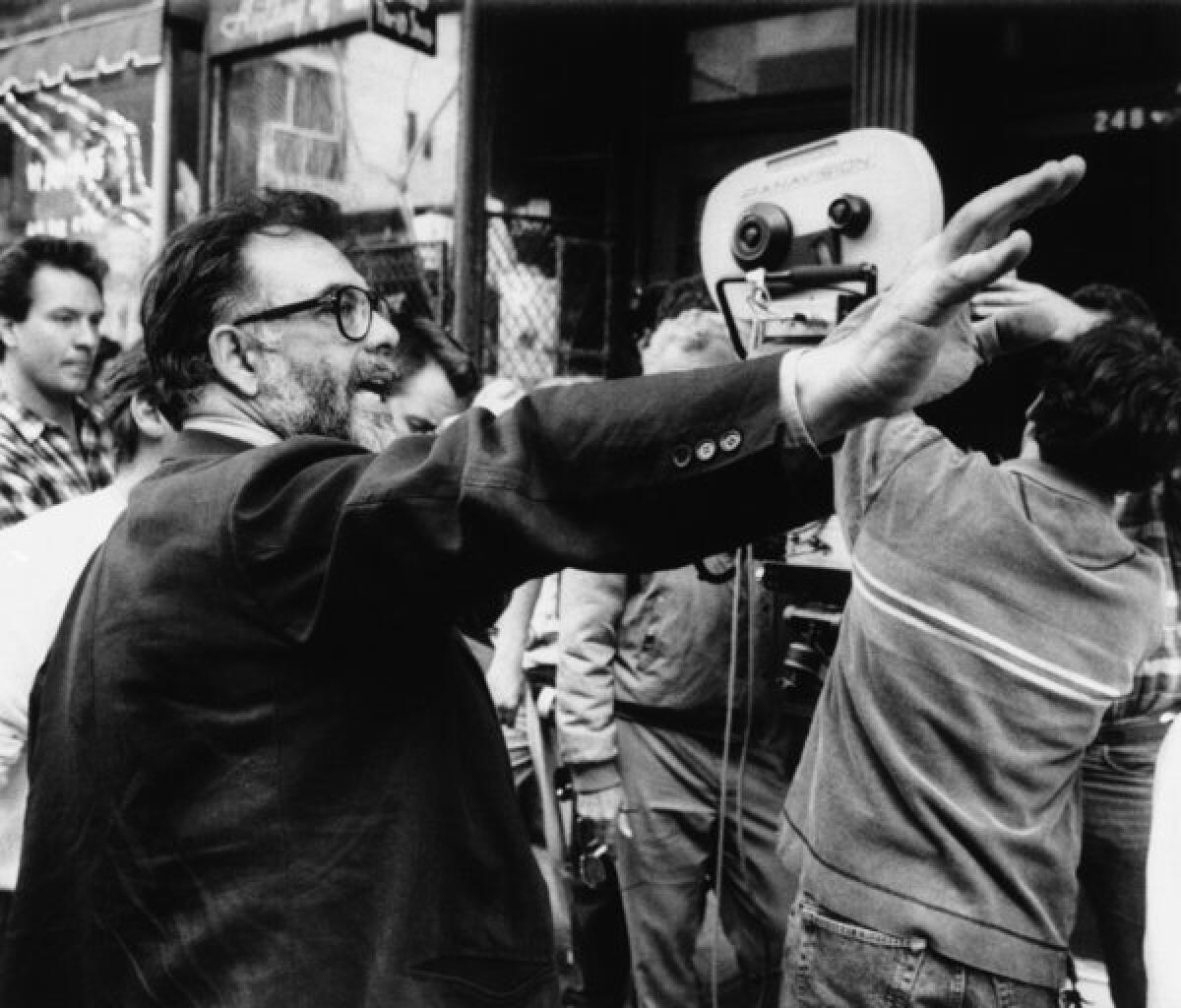A conversation with Francis Ford Coppola

- Share via
Oscar-winning writer-director-producer Francis Ford Coppola makes movies to understand himself.
“When you make a film it is like asking yourself a question,” Coppola said over the phone from his home in Northern California. “When it’s finished, you know the answer. Ultimately with all of cinema, we are just trying to learn about ourselves. I have always used the opportunity to make a film to learn more about myself, which I am still doing.”
Coppola, 73, is returning to the Paramount lot next year — the studio where he had enormous success with “The Godfather” trilogy and 1974’s “The Conversation,” and for which he just finished the first draft of an ambitious, multi-generational drama akin to his 1974 masterpiece “The Godfather, Part II.”
But he was in a reflective mood last week chatting about the Blu-ray release of “Francis Ford Coppola: 5-Film Collection,” arriving Tuesday. The set includes both his Vietnam War epic, “Apocalypse Now,” and the 2001 extended version, “Apocalypse Now Redux,” plus his expressionistic 1982 musical romance “One From the Heart,” which re-created Las Vegas on a sound stage, his 1974 psychological thriller “The Conversation” and 2009’s “Tetro,” one of the three small, personal films he has made in the past five years.
“Apocalypse Now Redux” wasn’t the only time you recut one of your films. In 1977, you reedited both 1972’s “The Godfather” and “The Godfather, Part II” into the NBC miniseries “The Godfather Saga.” Would you talk about the decision to revisit your films?
When a movie is about to come out on its initial debut, there are a lot of people involved — the financiers, the studio and the producers and also, many times, the foreign distributors. So it is a time of tremendous pressure and uncertainty. No one knows how it is going to go and how it is going to be received, so there are a lot of opinions. So often the film that gets released on that opening day has been almost traumatized.
So 20 years later, when the trauma is over, the film is out and has either been successful or not, you look at it. We were always interested in electronic cinema, so we always had copies from films I made. You can go back to what was the original version before everyone panicked.
Just as with your 1992 horror romance “Dracula,” “One From the Heart” was shot entirely on the sound stage in the style of the studio films from the golden age of Hollywood.
It has always fascinated me the way that era of Hollywood production was able to do everything out of the base of Los Angeles. Being a former theater student, of course, there is a part of me that is fascinated with stage crafts and what you can do with illusions and working within the confines of the studio.
“One From the Heart” is so visually arresting, it’s shocking that it wasn’t well received back in 1982.
The reviews were terrible and the box office was non-existent. It was so depressing. I owned the picture and pulled it from release.
In retrospect, why do you think the critics were so venomous?
You have to put it in context. I had made my “Godfather” films, “The Conversation” and then “Apocalypse Now” and then “One From the Heart.”
They were all done one after another and they were totally in a different style. So people who were used to “The Godfather,” which was a very classical style, suddenly they got hit with “Apocalypse Now,” which was sort of a different type of film, and then to go with what seemed at the time a totally innocuous love story shot in a world of artifice.... It was very difficult for people to have a logical judgment. Having made what were essentially four successful films in a row, “One From the Heart” was an easy shot to say, “This is terrible,” and that is what happened.
And it marked the end of Zoetrope Studios in Hollywood.
It sank our fledging studio. We had the dream of having a whole new Hollywood studio. It was a fun period but, unfortunately, a lot of those dreams don’t happen. It didn’t work and then it took me 10 years to pay off the debt.
What were your plans if Zoetrope stayed open?
I was working on another idea ... thinking about the wonderful era of the golden age of television, when those great live dramas were made. I thought there could be a live cinema in modern time where pieces like “One From the Heart” were performed live. That was why it was all [shot] in a studio.
PHOTOS AND MORE
VIDEO: Highlights from the Envelope Screening Series
The Envelope: Awards Insider
PHOTOS: NC-17 movies: Ratings explained
More to Read
Only good movies
Get the Indie Focus newsletter, Mark Olsen's weekly guide to the world of cinema.
You may occasionally receive promotional content from the Los Angeles Times.









